Get the Ball Rolling! Applying and Interviewing for Careers in Industry
Guest post by Guillaume Beaudoin, Scientist, Conagen Inc.
About one year has gone by since I had begun seriously looking for a job to end my postdoctoral experience at the University of Florida. I had read all the doom and gloom: how the ratio of the number of faculty positions to PhDs is forever dwindling1,2, anecdotes of grueling 3-day interviews, and the difficulties that new associate professors face3. While at times I was torn between an academic career and one in industry, considering all this, let’s just say I was not exactly enthusiastic about tenure-track faculty positions.
That process ultimately led to me starting a position as a research scientist at Conagen, a Synthetic Biology company focused on producing small molecules in microbes4. While I have only been at the company for about 6 months now, I’ve also helped interview a number of new hires for the company. These experiences have helped me more deeply understand the things I did right, and what I could have done better to land a job in industry.
Dreaming of the Interview
One of my personal strengths that I developed throughout my undergraduate and graduate degrees was to seek out new skills and opportunities. As an undergraduate, I had the opportunity to work in 6 different labs, including one in industry and one in Europe. I was able to get a strong foundation in organic chemistry, molecular biology, and biochemistry, making me fairly versatile. Additionally, they taught me the things I didn’t want to do, which is just as important! I realized that did not want to continue dissecting hundreds of mice, nor to agonize over hundreds of crystal screens and cross my fingers that one may yield a protein crystal of sufficient quality. Not that there’s anything wrong with these endeavors; they simply weren’t my cup of tea.
On the other hand, all of these experiences allowed me to hit the ground running in grad school and gave me the time to learn a greater variety of skills, from working with a number of different protein expression systems and protein families to mass spectrometry.
I encourage early-career scientists to get involved in all parts of your research. Be proactive, and actively look for opportunities to learn, even if few are offered. If someone is going to run an analysis for you, ask questions and learn as much as you can. Many people are very happy to talk about themselves and their work and like to help those that take an interest.
At the same time, there’s also something else you’re doing here. These questions, interactions with faculty, students, and postdocs will help build your professional network, which increases in importance as you inch closer to the job market.
Getting the Interview
I vastly underestimated the importance of my professional network on helping me get an interview. In fact, most of my interviews came from people I met professionally: a graduate student at a conference, a collaborator in industry, and a collaborator from academia all played major roles.
There are many opportunities to network at universities: go to seminars, ask questions, and introduce yourself to speakers. Go out to lunch with speakers: this will help you meet the guests and also get to know professors and other students at your institution. Additionally, when going to conferences, don’t just go for the science. Be sure to meet other students, and introduce yourself to faculty members, as well as representatives from the industry. Add these individuals to LinkedIn and let some of them know when you are looking for a job, you’d be surprised how helpful some people can be.
The Interview
As is the case for many Synthetic Biology companies, Conagen is growing and has added a number of new employees. This provided an opportunity for me to see interviews from the interviewee’s point of view while having been on the other side just a few months earlier.
In my experience, all of the interviewees were expected to prepare a presentation of a certain length. In general, it is best to keep to that length, or even to have it end a few minutes earlier. Keep in mind that it is common for people to interrupt you and ask questions as you are presenting. I have found it rare for interviewers to complain about presentations being short.
Your presentation should also tell a story that is concise and to the point. It is also important to know your audience. Generally, the audience will consist of scientists, but they will have various backgrounds, from chemists, analytical chemists, microbiologists, and plant biologists: you want to tell a story that everyone can follow. It also is important to mention the rationale behind the struggles and decisions taken during the work – talk not only about the discoveries but also how your ideas, troubleshooting skills, and perseverance led to a positive outcome. Also emphasize rare skills that you might have, from an obscure technique or instrument to working with non-model organisms, not only might it be something they are looking for, but shows off your versatility as a scientist.
It is also generally a plus if you can use the jargon of the company you’re applying to. At a Synthetic Biology company trying to make small molecules in microorganisms, think “titers” and “grams per liter” instead of “concentration” and “millimolar”. Little things like that may seem trivial, but it’s important to use terminology that your audience is familiar with.
The road towards stable employment in the scientific world can be a daunting one, but very possible. In my view, versatility, personally connecting with other professionals in academia and industry, and communicating effectively are three critical variables to prioritize and reflect upon. It’s different for everyone, and so it’ll some time and iterations. But the most important thing is to get out there and take those chances, make mistakes, get messy – to quote a certain famous fictional educator5 – and it’ll get better, I promise.
References:
1. McKenna, Laura. (2016) The Ever-Tightening Job Market for Ph. D.s The Atlantic. https://www.theatlantic.com/ed…
2. (2017) Many junior scientists need to take a hard look at their job prospects. Nature. 550: 429. DOI: 10.1038/550429a
3. Wilson, Robin. (2012) Why Are Associate Professors so Unhappy? The Chronicle of Higher Education. https://www.chronicle.com/arti…
4. Conagen – http://conagen-inc.com/
5. Frizzle, Valerie. (1994) The Magic School Bus
 About the Author: Guillaume Beaudoin is a scientist at Conagen Inc. you can find him on LinkedIn at https://www.linkedin.com/in/guillaume-beaudoin-91566366/
About the Author: Guillaume Beaudoin is a scientist at Conagen Inc. you can find him on LinkedIn at https://www.linkedin.com/in/guillaume-beaudoin-91566366/


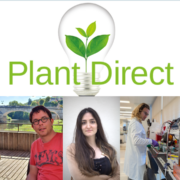
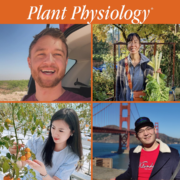
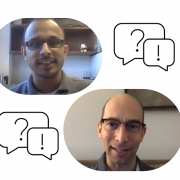
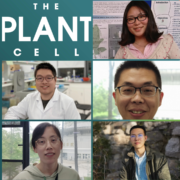

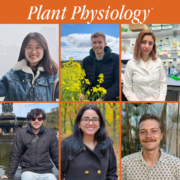


Leave a Reply
Want to join the discussion?Feel free to contribute!